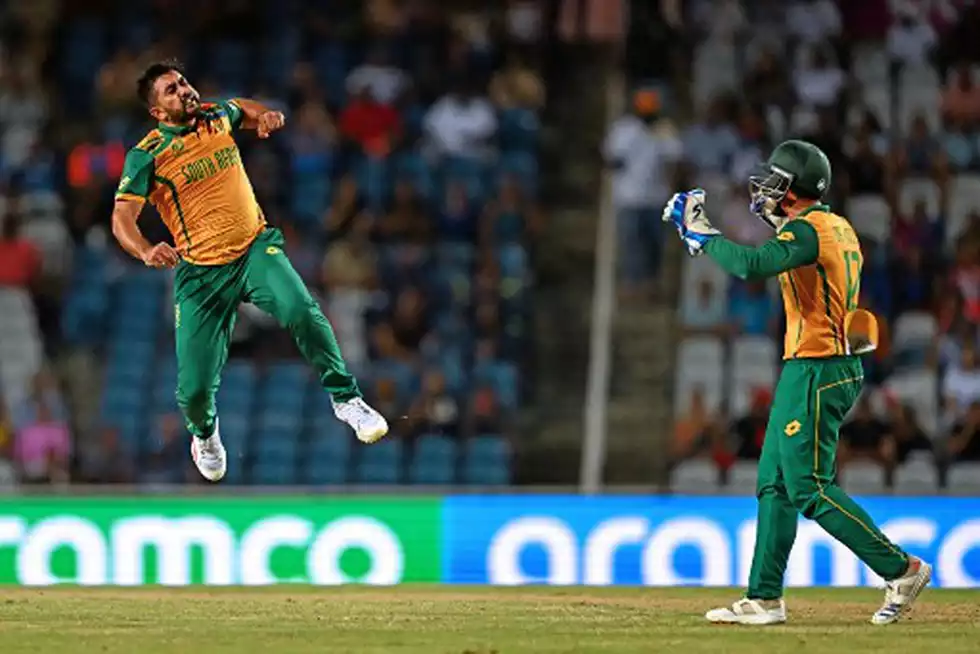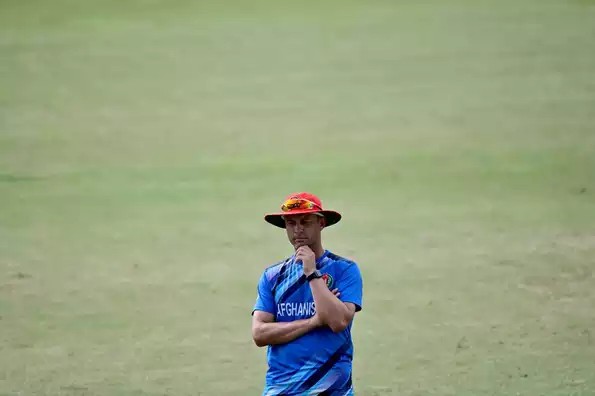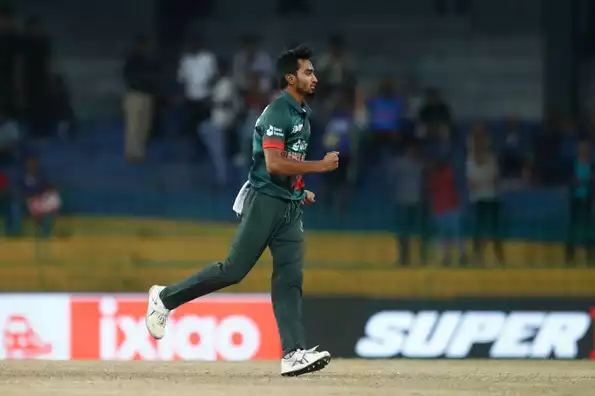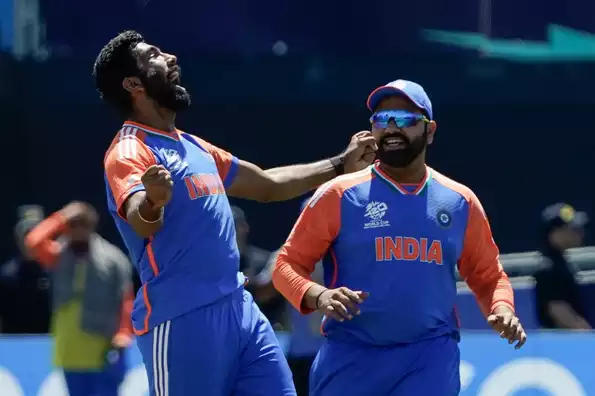Hope is the thing with feathers. It gets you out of bed when the alarm ends your night’s sleep at 2 AM. It explains brushing your teeth at 2.15 AM. It floods the black pools of your six-month-old kitten’s eyes as he stares at you through the winter darkness: you’re awake! Let’s play!
“Firstly, thanks for waking up that early, jeepers,” Aiden Markram told a press conference on Tuesday when he was asked for his message to the fans ahead of the men’s T20 World Cup semifinal against Afghanistan in Tarouba, which started at 2.30 AM on Thursday South Africa time.
Markram seemed surprised at the prospect of people harbouring enough hope to watch him and his team play at that hour. When you’ve won seven consecutive games you have soared, feathered or not, past hope. You know you can win because you have won.
But hope is all the fans have. Some of them have been willing you onwards and upwards since that soggy semi against England at the SCG in 1992. Others wouldn’t have been born then. Still others wouldn’t have been alive the last time you were in a semi in this format, more than 10 years ago. Before the sun rose on Thursday, all of them, regardless of when they were born, knew this time would be different.
The television cameras settled on a splodge of yellow-shirted spectators in the stands. Australia supporters! By all that made sense, they should have been watching Mitchell Marsh’s men play South Africa in this semi. But Afghanistan have, in the best and most exciting way, made this tournament not make sense. Until this match, of course.
Their dismissal for 56 – their lowest total in all their 138 T20Is – in 11.5 overs was confirmed, on review, at 3.33 AM. Azmatullah Omarzai’s 10 was their highest score. Aside, that is, from the 13 extras. Kagiso Rabada bowled Ibrahim Zadran through the gate with his first ball of the match and did the same to Mohammad Nabi with his fourth, a sniping inswinger, which reduced the Afghans to 20/4 and erased their chances of posting a competitive total.
The essence of their nightmare was captured not by a delivery or a stroke, but by Naveen-ul-Haq arriving at the crease in the 10th over wearing neither helmet nor cap. When you’re taking guard at 50/8 who cares what’s on your head?
A heaving Quinton de Kock lost his off stump to Fazalhaq Farooqi on the 11th delivery of South Africa’s reply, and Reeza Hendricks and Markram sealed victory in 8.5 overs with an unbroken stand of 55 off 43. The target was chalked off by 4.37 AM. Next stop the uncharted territory, for this team, of a World Cup final. They will meet England or India in Barbados on Saturday.
Much of which will be overshadowed by a Brian Lara Stadium pitch on which even the outrageously fine player for whom the ground is named would have struggled to shine. Some deliveries took off, others refused to launch, all seemed to veer this side or that. There was seam. There was swing. There was turn. Nothing about batting on this surface was fair.
A case in point was the penultimate delivery of South Africa’s last powerplay over, which was bowled by the bearded flying fury on legs called Rashid Khan – whose googly to Hendricks pitched short and stayed resolutely low.
Maybe because he has had a difficult tournament, scoring 80 runs in seven innings before this match, 43 of them in one innings, and never looking fluent, Hendricks was equipped to deal with what he faced in that instant; he jammed his bat onto the ball. It wasn’t anything like as elegant as Hendricks often is, but it was effective.
Rashid fielded and followed through into Hendricks’ half of the pitch, looking at least as menacing as Dennis Lillee. He aimed a face as thunderous as his eyes were bolts of lightning at the South African, and underarmed the ball onto the stumps even though the batter was well within his ground. The bails and stumps lit up in apologetic sympathy.
“We might have played better than that but the conditions didn’t allow us to do what we wanted,” Rashid said on television after the match, adding bleakly, “But you have to be prepared for any conditions.”
Between innings, a television interviewer had approached Rabada on the outfield. “Hi KG,” you could lipread her saying, “I’m Laura McGoldrick, Martin Guptill’s wife.” Rabada told her on camera, “We 100% believe that this is the team [to win a World Cup]. Why play if you don’t believe it?”
Rabada was not part of the side beaten by McGoldrick’s husband and 10 other New Zealanders – one of them, Grant Elliott, born and raised a South African – at Eden Park in the 2015 World Cup semi. Those players no doubt also believed they could win. But Rabada was at Eden Gardens in November to endure another World Cup semi defeat, to Australia. He would have believed South Africa could win then, too.
Now they have earned only their second success in 11 knockout games, and their first in a semifinal. Dare they hope for one more win? “There’s nothing to be scared of,” Markram said for the cameras, his eyes unnervingly steady.
“‘Hope’ is the thing with feathers,” Emily Dickinson wrote as the opening line of a poem whose first verse continues, “That perches in the soul. And sings the tune without the words. And never stops at all.”
She was right originally, and on that wet night in Sydney in 1992, in Karachi in 1996, in Birmingham in 1999, in St Lucia in 2007, in Nottingham in 2009, in Dhaka in 2011, in Dhaka again in 2014, in Auckland in 2015, in Kolkata last year. And in Tarouba on Wednesday. Or Thursday, if you were among those who rose at 2 AM emptied of sleep but filled with hope.





